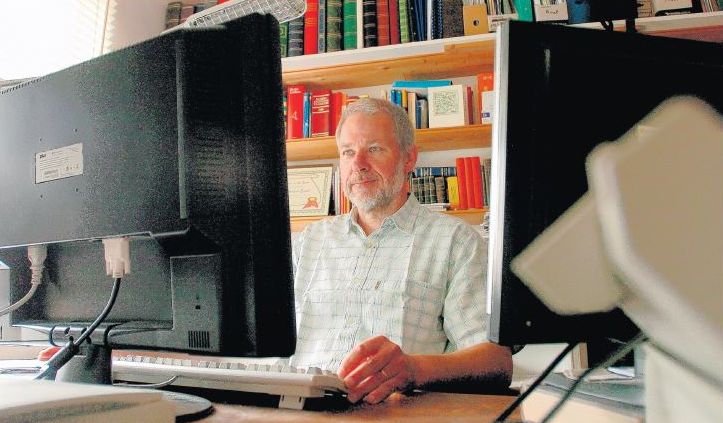Home office or work from home?
Thoughts on working from home and the term ‘home office’, by HE Translations director Herbert Eppel

Like many language service providers, I have been working from home for many years now, as described in the Leicester Mercury article from 2009 under the heading “Home work – we love it!”, which is available for your delectation here. Although the article didn’t foresee corona, it could perhaps be regarded as rather prescient in that it described a growing trend towards home working and envisaged a future in which this could become the norm, rather than an exception.
During the corona pandemic the term Homeoffice (alternative spelling: Home-Office) found its way into the standard German Duden dictionary – see here. Intriguingly, and perhaps mildly entertainingly, when Germans say or write Homeoffice, more often than not they refer to the activity (e.g. “ich mache Homeoffice“, literally translated as “I am doing home office” but indicating “I am presently working from home”), rather than a physical space.
In any case, the question of whether ‘home office’ is also used in English was recently debated in translator circles. The answer isn’t as clear-cut as one might think, and not just because of the potential confusion with the UK Government’s Home Office, which in a strict technical sense is the government department responsible for security and immigration within the country, analogous to an interior ministry or Innenministerium in German. The controversial activities of the UK Home Office in pursuing “hostile environment” actions against non-UK citizens mean that most will want to avoid ambiguous language that might suggest they have any connection to such an entity. Saying one is in The Home Office at present might worryingly suggest entanglement in labyrinthine bureaucracy and queues, or even the threat of impending expulsion.
In any case, I for one have no hesitation in referring to the dedicated room from which I run my translation business as my home office. And this is the point: someone who only works from home occasionally or perhaps temporarily, e.g. during the pandemic, may not have a dedicated room in their home, in which case they couldn’t really refer to their home office. It seems perfectly logical that those who do have such a room refer to it as their home office, and there can be little doubt that the term will rapidly become more common, as evidenced by the fact that it is already included in the Cambridge Dictionary, for example. If the term does indeed take hold in English, in future will people say they are homeofficing or just use the shorthand acronym WFH? And will a mistranslation somewhere say “I am conducting an interior ministry”, adding a religious dimension to mundane domestic labour?




